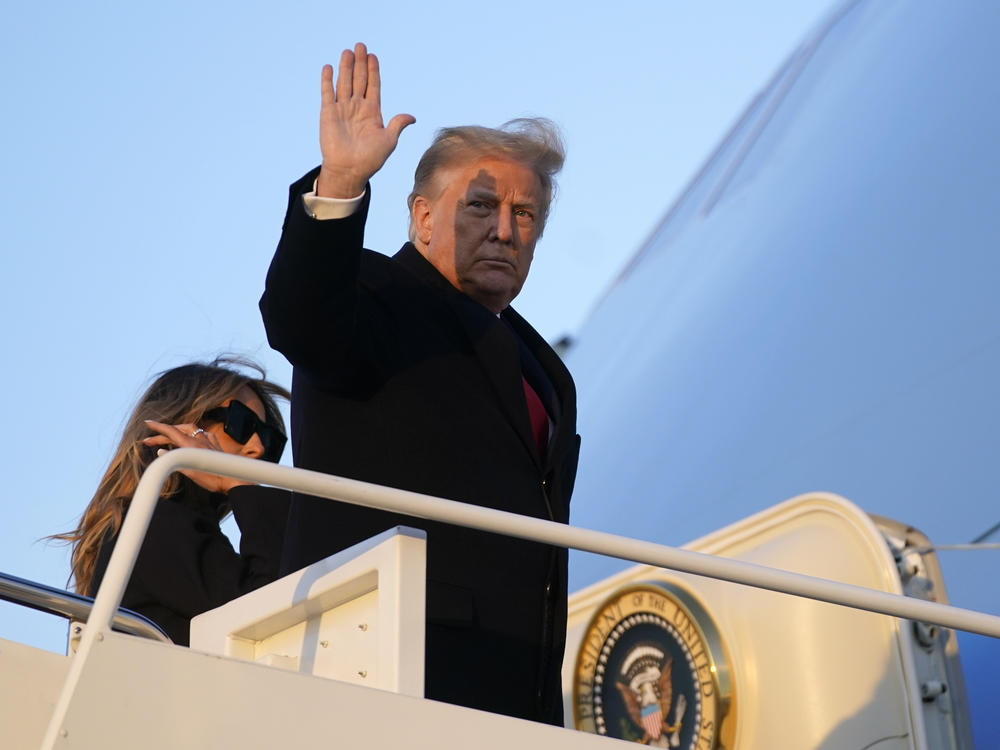Section Branding
Header Content
Jobless Benefits Lapse For Millions As Trump Withholds Signature On Relief Bill
Primary Content
Updated Sunday at 8:23 a.m. ET
Jobless benefits that were expanded for millions of Americans earlier this year in response to the coronavirus pandemic ran out on Saturday, as President Trump renewed his criticism of a recently passed $900 billion relief package that includes an extension of federal unemployment assistance.
Trump caught Washington by surprise this week with his criticism of the relief package. But without his signature on the bill, two pandemic-related unemployment programs have now come to end. One of the programs extended benefits to people who typically do not qualify for jobless aid, such as gig and contract workers. The other provided up to 13 weeks of additional assistance for Americans who have exhausted their state benefits.
The relief package that passed Congress this past week with broad bipartisan support not only would have extended coverage under these programs, but also included a $300-per-week supplement to state jobless benefits for those who are unemployed because of the pandemic. The relief package was passed on Monday following months of negotiations, but on Tuesday, the president deemed the measure a "disgrace."
Trump's main point of contention with the bipartisan bill — which was negotiated in part by Treasury Secretary Steven Mnuchin — is the size of payouts allotted for individuals. The bill includes direct relief payments of as much as $600 for Americans who meet certain income thresholds, but Trump has insisted that amount is too low. He is demanding Americans receive $2,000 instead.
"I simply want to get our great people $2000, rather than the measly $600 that is now in the bill. Also, stop the billions of dollars in 'pork'," the president tweeted Saturday.
Trump left Washington this week without signing the measure, though the legislation was sent to his Mar-a-Lago resort in Florida. From there, the president continued to assail the bill throughout the Christmas holiday and into the weekend.
The delay has not only threatened to plunge millions deeper into economic uncertainty, but it has also moved the government closer to a shutdown, with the fate of an attached spending measure of $1.4 trillion also in jeopardy.
Trump's objection to the bill did, however, find a friendly audience with House Democrats, who attempted to pass an increase in the payments to $2,000 on Thursday. But that effort was blocked by House Republicans.
The additional jobless benefits became a crucial financial lifeline for many Americans following passage in March as part of the CARES Act. Millions lost their jobs as a result of the pandemic, and while many have have since gone back to work, unemployment remains high. The week before Congress passed the relief package, initial claims for unemployment insurance stood at more than 800,000.
On Saturday, President-elect Joe Biden issued a statement calling Trump's delay in signing the measure an "abdication of responsibility."
"It's the day after Christmas, and millions of families don't know if they'll be able to make ends meet because of President Donald Trump's refusal to sign an economic relief bill approved by Congress with an overwhelming and bipartisan majority," Biden said.
The president-elect went on to note that further delay could end an eviction moratorium and halt much-needed aid to small business owners hit hard by the pandemic. Furthermore, the president-elect warned of dire effects if a government shutdown were allowed to happen.
"This bill is critical. It needs to be signed into law now," Biden said.
While it is unclear whether Trump will sign the legislation, it is also unclear whether Trump will veto it. If he does so, Congress would have enough votes to override.
NPR's Jim Zarroli contributed to this report.
Copyright 2020 NPR. To see more, visit https://www.npr.org.

